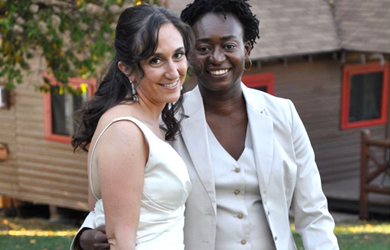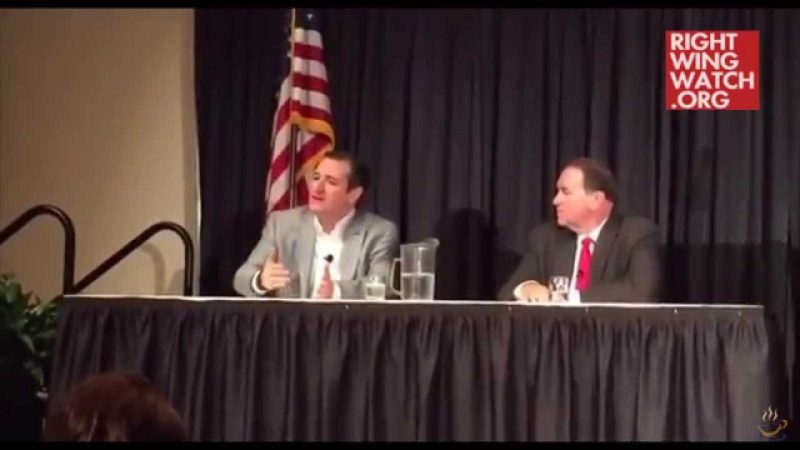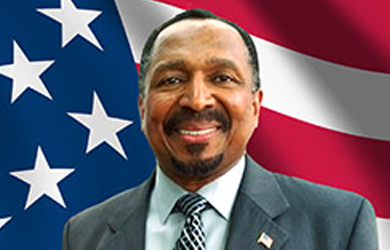E. W. Jackson, the Republican candidate for Lt. Governor in Virginia, was the guest on Bryan Fischer’s radio program today where he was treated to a sympathetic interview by a host who shares his radical views.
During the discussion, Jackson stood by his anti-gay and anti-abortion views and suggested that efforts to hold him accountable for his previous statements now that he is running for office was somehow an unconstitutional religious test.
Jackson seems to believe that things he said about political issues are not relevant to his political candidacy because he said those things in his capacity as a minister and so using them against him in his campaign amounts to anti-Christian persecution:
It’s a sad commentary on our media and culture today that anybody that expresses a Biblical worldview is marginalized and, frankly, not too put too fine a point on it, persecuted for doing so. And I think that’s a sad commentary.
But look, it’s an attack ultimately on every church-going, Bible-believing Christian out there who holds to a traditional worldview and frankly, I think one of my goals is to champion their right to hold their views without being persecuted for it.
…
I think Americans are tired of being told that holding to Judeo-Christian values somehow makes you can idiot, as you put it, makes you backwoods, makes you ignorant and unless you buy into the sort of contemporary morality of the day, you are a person to be shunned.
Our Founding Fathers believed that there should never be a religious test and yet that’s what we’re seeing today. We’re seeing people apply a religious test and they’re saying anything you believed or said as a minister disqualifies you from serving as Lt. Governor because you hold to these Biblical views.
For some reason, Fischer did not disabuse Jackson of this notion and explain that while “the federal government cannot use a religious test, but voters can, and they should. Let’s be done with the nonsense that asking questions about a candidate’s faith is inappropriate. It certainly is not. In fact, in some ways, the faith questions are the most important, because they go right to the issue of a man’s most deeply held convictions and values.”








